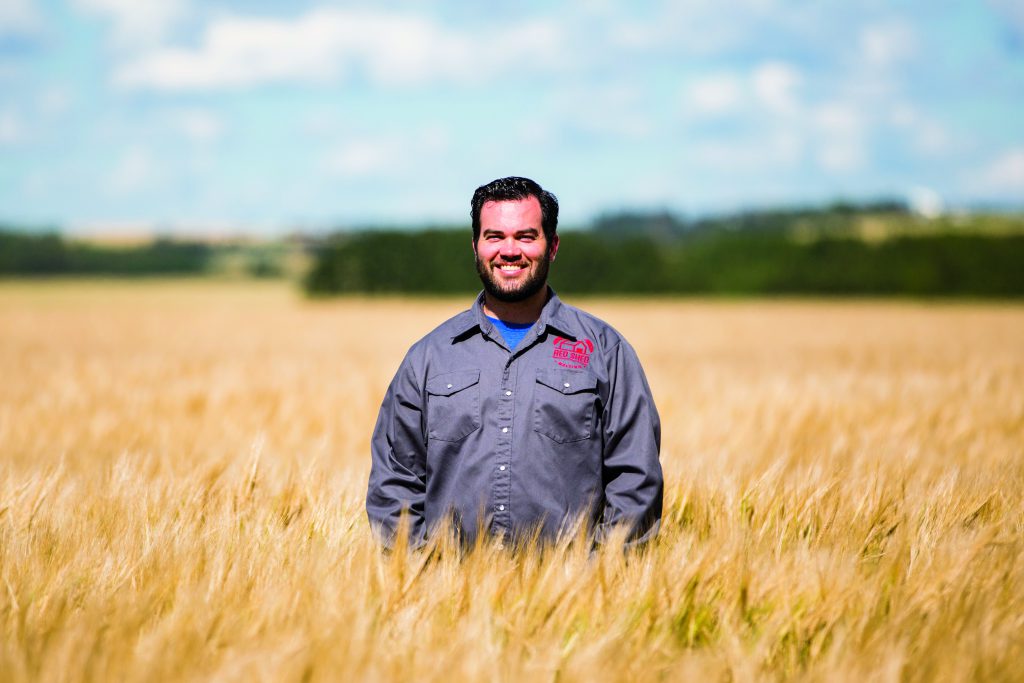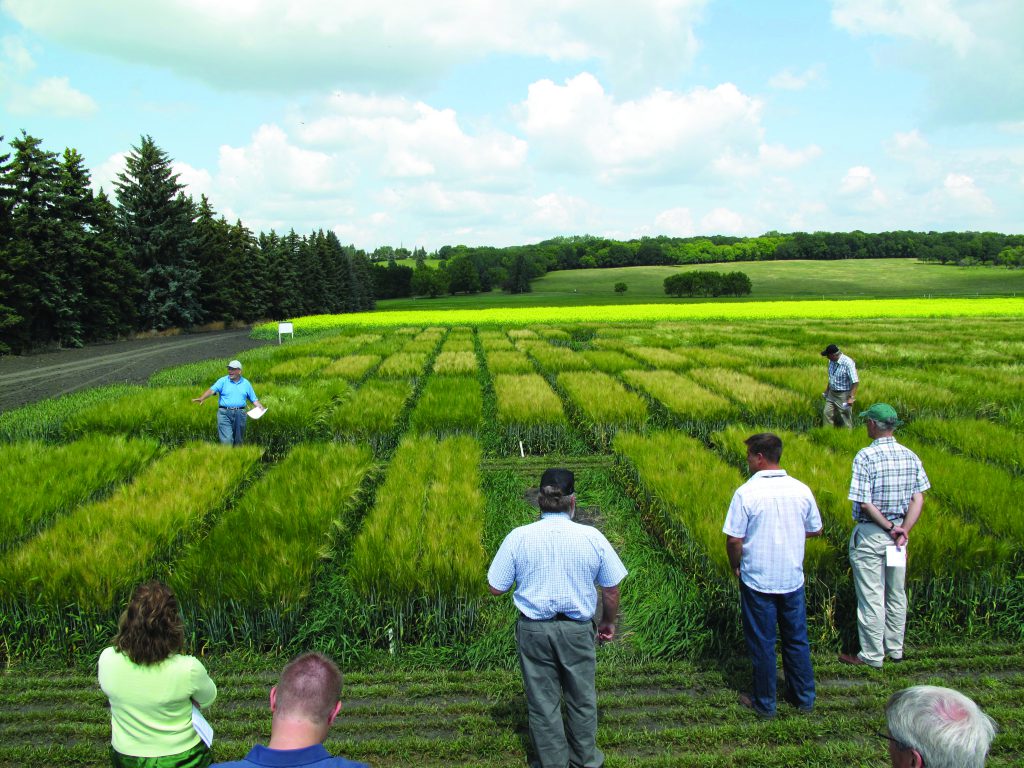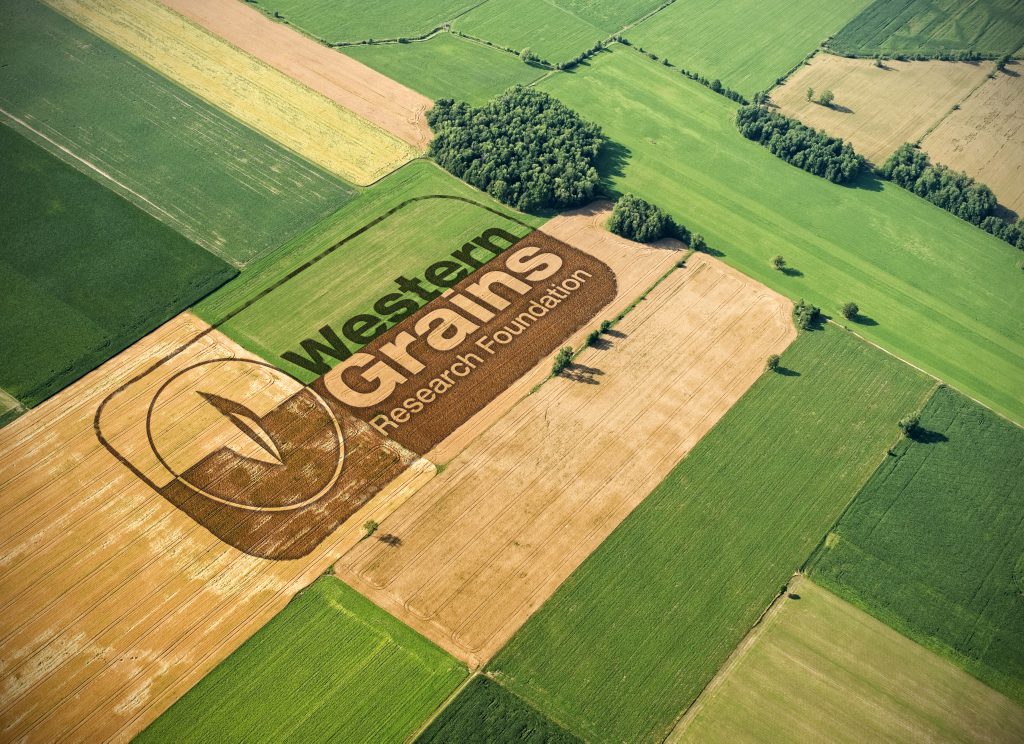Western Canadian Barley Producers Invest $2.4 Million in Barley Breeding
Alberta Barley, the Saskatchewan Barley Development Commission (SaskBarley), the Manitoba Wheat and Barley Growers Association (MWBGA) and the Western Grains Research Foundation (WGRF) are pleased to announce a commitment of more than $2.4 million over five years to the barley variety development program at the University of Saskatchewan Crop Development Centre (CDC).

“Producers have played an important role in funding barley variety development,” says Dave Sefton, WGRF Board Chair. “Since 1995 producers have invested almost $15 million into barley variety development through the Western Grains Research Foundation. Renewing our agreement with the CDC and having all of the prairie barley commissions and associations investing together is an important step to ensuring producers continue to get good value for their check-offs.”

CDC has released more than 70 malt, feed and food barley varieties since 1971, including Harrington, CDC Copeland and CDC Austenson. In the past five years alone, the program has released new malting varieties, including CDC Clear (2011), CDC Bow (2014), CDC Platinum Star (2014) and TR12135 (to be named CDC Fraser), in 2015.

“We are extremely pleased to have the three provincial commissions joining WGRF in supporting barley breeding at the CDC, demonstrating continued producer support for research targeting improved yield, disease resistance, and malt quality,” Kofi Agblor, Managing Director of the CDC. “This funding provides stability to the program for maintaining long-term, highly qualified technical staff, as well as resources for marker development and use in the breeding program.”
“SaskBarley is proud to have provided leadership in bringing together the prairie barley commissions to invest in the barley breeding program,” says Jason Skotheim, SaskBarley Board Chair. “Through this investment, barley producers’ check-off dollars are being reinvested into breeding programs that will develop varieties that are more disease resistant, have greater yield, and provide greater profitability in years to come.”
“Manitoba barley growers are pleased to partner with barley producers across Western Canada to provide funding for variety development work that will improve the profitability and long term sustainability of barley,” said Fred Greig, MWBGA chair.
“The CDC’s team of researchers and technicians continually demonstrate that their work is world class, which makes it a good choice for Alberta’s barley farmers when selecting varieties,” said Mike Ammeter, Alberta Barley Board Chair.
For further information, contact:
Trevor Bacque
Communications Manager
Alberta Barley
tbacque@albertabarley.com
403-219-6266
Delaney Seiferling
Communications Manager
Saskatchewan Barley Development Commission
dseiferling@saskbarleycommission.com
306-250-1099
Lori-Ann Kaminski
Research Manager
Manitoba Wheat and Barley Growers Association
info@mbwheatandbarley.ca
204-745-8044
Mike Espeseth
Communications Manager
Western Grains Research Foundation
MikeEspeseth@westerngrains.com
306-975-0365
Backgrounder
Producer check-offs on barley have been invested by the Western Grains Research Foundation into the barley breeding program at the CDC since 1995.
The CDC barley program is allocating funding towards breeding varieties in the following market classes: Two-row malting, Two-row general purpose, Two-row hulless (food/malt). All three classes have common objectives relating to agronomics, physical grain quality and disease. Malting and food barley varieties have additional specific quality objectives.
As of August 1, 2017, barley producers in Western Canada will see a change to the way their barley check-off is administered. The Western Canadian Deduction (WCD) that was established by the federal government in 2012 will expire as of July 31, 2017. It was established as a temporary transitional check-off on wheat and barley to provide stable funding for ongoing wheat and barley variety development. Provincial cereal organizations across Western Canada have been working together to assume the responsibilities of the WCD as of August 1, 2017.
